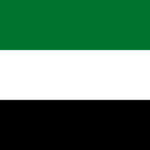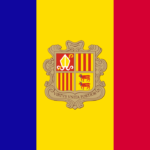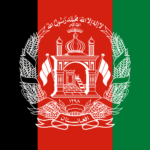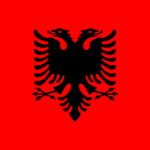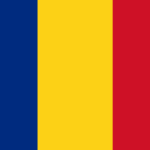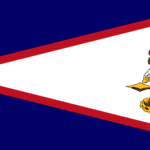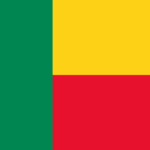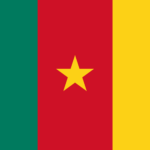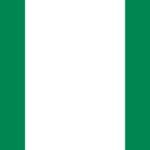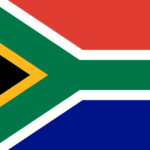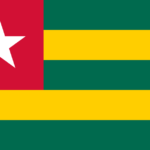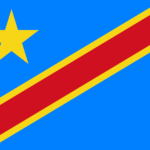God Bless Our Homeland Ghana

Ghana, a nation with a rich cultural tapestry, proudly boasts its national anthem, “God Bless Our Homeland Ghana,” adopted in 1957. This anthem, with a duration of 56 seconds, encapsulates the spirit and aspirations of the Ghanaian people. Let’s delve into the history, evolution, controversies, and global recognition of this musical emblem that resonates across the nation.
History of the National Anthem
The anthem’s genesis lies in the brilliant composition of Philip Gbeho, complemented by the lyrical prowess of Emmanuel Pappoe-Thompson. However, it underwent a significant transformation under the aegis of Kwame Nkrumah, Ghana’s first head of state. A literary committee, led by Nkrumah, played a pivotal role in revising the lyrics. Intriguingly, Michael Kwame Gbordzoe claims authorship of the current lyrics, asserting his contribution after Nkrumah’s overthrow.
Competition and Selection of Lyrics
The post-Nkrumah era saw a competition to determine the anthem’s lyrics. Kwame Gbordzoe, then a student at Bishop Herman College, emerged victorious. His lyrics replaced “Lift High The Flag Of Ghana,” becoming the official anthem since the 1970s. This shift marked a cultural transition, reflecting the nation’s evolving identity.
Current Lyrics and Pledge
Gbordzoe’s officially recognized lyrics are accompanied by Ghana’s national pledge. These words, resonating through generations, symbolize a collective commitment to the homeland. The anthem serves not only as a musical composition but also as a lyrical representation of national unity and pride.
English version
I God bless our homeland Ghana And make our nation great and strong, Bold to defend forever The cause of Freedom and of Right; Fill our hearts with true humility, Make us cherish fearless honesty, And help us to resist oppressors' rule With all our will and might for evermore. II Hail to thy name, O Ghana, To thee we make our solemn vow: Steadfast to build together A nation strong in Unity; With our gifts of mind and strength of arm, Whether night or day, in mist or storm, In every need, whate'er the call may be, To serve thee, Ghana, now and for evermore. III Raise high the flag of Ghana and one with Africa advance; Black star of hope and honour To all who thirst for liberty; Where the banner of Ghana freely flies, May the way to freedom truly lie; Arise, arise, O sons of Ghana land, And under God march on for evermore!
Twi translation
I Nyame nhyira yɛn kurom Gaana Na ma yɛn man no nyɛ kɛse na ɛnyɛ den, Akokoduru a wɔde bɛbɔ wɔn ho ban daa Ahofadi ne Hokwan ho asɛm; Fa ahobrɛase ankasa hyɛ yɛn koma ma, Ma yɛn ani nnye nokwaredi a ensuro ho, C Na boa yɛn ma yɛnko tia nhyɛsofo nniso Yɛde yɛn pɛ ne yɛn ahoɔden nyinaa daa daa. II O Gaana, nkamfo nka wo din, Wo na yɛhyɛ yɛn bɔ a ɛyɛ aniberesɛm. Gyina pintinn sɛ wɔbɛbom akyekye Ɔman a ɛyɛ den wɔ Biakoyɛ mu; Yɛnam yɛn adwene ne basa ahoɔden akyɛde ahorow no so, Sɛ́ ɛyɛ anadwo anaa awia, wɔ nsuyiri anaa ahum mu no, C Wɔ ahiade biara mu no, whate'er frɛ no betumi ayɛ, Sɛ mɛsom wo, Gaana, seesei ne daa daa. III Ma Gaana frankaa so kɔ soro Ne biako a Afrika anya nkɔso; Nsoromma tuntum a anidaso ne nidi wom Wɔde kɔma wɔn a ahofadi ho sukɔm de wɔn no nyinaa; Baabi a Gaana frankaa no tu fa ne ho no, Ɛmmra sɛ ɔkwan a ɛkɔ ahofadi mu no nni atoro ampa; A Gaana asase so mma, monsɔre, monsɔre, Na Onyankopɔn ase no, nantew kɔ so daa!
Ewe translation
I Mawu nayra mía denyigba Ghana Eye na míaƒe dukɔa nalolo eye wòasẽ ŋu, Dzinɔameƒotɔe be wòaʋli eta tegbee Ablɔɖe kple Gomenɔamesi ƒe Nya; Mitsɔ ɖokuibɔbɔ vavãtɔ yɔ míaƒe dziwo me fũ, Na míade asixɔxɔ anukwareɖiɖi si me vɔvɔ̃ mele o ŋu, Z Eye nàkpe ɖe mía ŋu míatsi tre ɖe ameteteɖeanyilawo ƒe dziɖuɖu ŋu Le míaƒe lɔlɔ̃nu kple ŋusẽ katã me tegbee. II Mido gbe na wò ŋkɔ, Oo Ghana, Wòe míedo míaƒe adzɔgbe vevi la na wò. Mili ke be miatu nu ɖekae Dukɔ si sesẽ le Ðekawɔwɔ me; Le míaƒe susu kple alɔ ƒe ŋusẽ ƒe nunanawo me la, Eɖanye zã alo keli o, le kuɖiɖi alo ahom me, X Le hiahiã ɖesiaɖe me la, yɔyɔ ka kee ɖanye o, . Be masubɔ wò, Ghana, fifia kple tegbee. III Do Ghana ƒe aflaga ɖe dzi Kple ɖeka si me Afrika do ŋgɔ le; Mɔkpɔkpɔ kple bubu ƒe ɣletivi ameyibɔ Na amesiwo katã ƒe ablɔɖe ƒe tsikɔ le wuwum; Afisi Ghana ƒe aflaga dzona faa le la, Neva eme be ablɔɖemɔ la nanye alakpa vavã; O Ghana-nyigba dzi viwo, tso, tso, Eye le Mawu te la, yi edzi tegbee!
Musical Duration and Universal Recognition
With a brief duration of 56 seconds, “God Bless Our Homeland Ghana” has become ingrained in the nation’s fabric. Universal Newsreel coverage from 1957 captures the euphoria surrounding Ghana’s establishment, solidifying the anthem’s historical place.
Impact on Ghanaian Identity
The anthem plays a crucial role in fostering national pride and unity. Its cultural significance extends beyond musicality, becoming a symbol of shared values and aspirations. As Ghana evolves, the anthem remains a steadfast beacon of identity.
Evolution of the Anthem
Over the years, the anthem has undergone changes and revisions, adapting to the cultural shifts within Ghana. These adaptations reflect the dynamic nature of national identity and the anthem’s enduring relevance.
Controversies Surrounding the Anthem
Controversies, particularly disputes over authorship, have surrounded the anthem. Such debates underscore the emotional attachment Ghanaians have towards their national symbol, evoking sentiments of patriotism.
Symbolism in the Lyrics
Analyzing the anthem’s lyrics unveils layers of symbolism, encapsulating the essence of Ghanaian aspirations. Each word reflects a national narrative, weaving a story of resilience, progress, and unity.
Usage in Official Ceremonies
The anthem’s inclusion in official events and ceremonies amplifies its symbolic importance. It serves as a unifying element, bringing Ghanaians together in moments of national significance.
Global Recognition
Beyond Ghana’s borders, the anthem enjoys global recognition, representing the nation in international forums. Its melody resonates as a symbol of Ghana’s cultural richness and diplomatic presence.
Educational Significance
Inclusion in educational curricula imparts the anthem’s values to younger generations. Schools become conduits for passing on not just the musical notes but the ethos embedded in the anthem’s lyrics.
Public Reaction and Sentiments
Public sentiment towards the anthem is diverse, yet it universally evokes a sense of pride. Ghanaians connect emotionally with the anthem, making it an integral part of their cultural identity.
Legacy of the Anthem
As the anthem continues to echo through generations, its legacy endures. It remains a cultural cornerstone, reflecting the resilience, unity, and pride of the Ghanaian people.
Conclusion
“God Bless Our Homeland Ghana” is not merely a national anthem; it’s a testament to the spirit and journey of a nation. From its inception in 1957 to the present day, the anthem has evolved, symbolizing Ghana’s dynamic identity. As it continues to resonate in official ceremonies, schools, and the hearts of Ghanaians, its legacy lives on, blessing the homeland with unity, pride, and a shared national identity.
FAQs
- Who composed the music for Ghana’s national anthem?
- The music was composed by Philip Gbeho.
- When were the current lyrics of “God Bless Our Homeland Ghana” adopted?
- The current lyrics, written by Michael Kwame Gbordzoe, were adopted in the 1970s.
- Why was there a competition for the anthem’s lyrics after Nkrumah’s overthrow?
- The competition aimed to select new lyrics and mark a cultural transition post-Nkrumah’s era.
- Is the national anthem taught in Ghanaian schools?
- Yes, the anthem is included in educational curricula, emphasizing its cultural and national significance.
- How long is the duration of Ghana’s national anthem?
- The anthem has a duration of 56 seconds.
